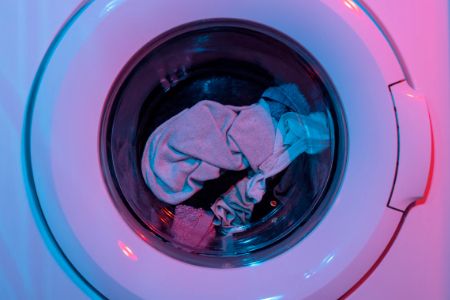Bondi Water Micr🦠plastic Blues
Scientists have known for years that synthetic fibres are poisoning seas, waterways and our food supply with microplastic pollution. In fact, The Guardian pointed out eight years ago that the staple fabric of Kmart and fast-fashion — synthetic fleece — can release a gram of microfibres each time it's washed and that older fleece garments can release double that amount. 😧

The minuscule size of synthetic microfibres lets them be ingested by fish and other animals where they can bioaccumulate which can, in turn, concentrate toxins inside creatures higher up the food chain. Mark Browne, a prolific researcher at University of New South Wales, found microfibres made up 85% of human-made shoreline debris globally — and that was in 2011.
Plus, microfibres are found in fresh water as well. Plastics leach chemicals like bisphenol A (BPA) as they degrade along with carcinogenic polychlorinated biphenyls (PCBs) both of which can also concentrate in animal tissue.
Suggested alternatives to traditional laundering include nanoballs which allegedly attract and trap plastic fibres and washing machines using pressurised carbon dioxide (CO2) instead of water (H2O) …
Another idea is putting filters on washing machines because of the thousands of fibres that can be released with each wash cycle according to the Plastic Soup Foundation. Or, how about we all buy clothing made from non-synthetic fabrics and maybe don't wash your clothes as often. Hanging items in sunshine and airing them can often be just as good.
C'mon 🌊 Bondi — let's save our beach from fucking plastics! Check this out in the fight against plastic pollution.
- ↜ Previous: How to Take 📝 Notes
- ↝ Next: God is a 🥔 Spud